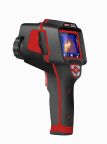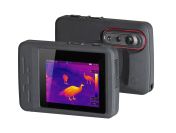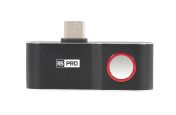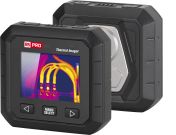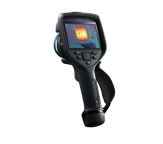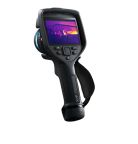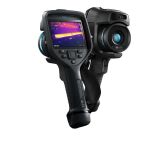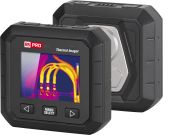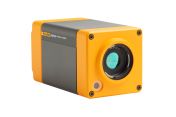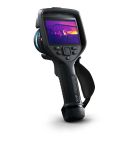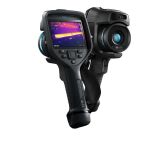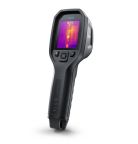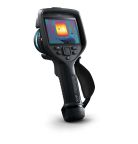Thermal Imaging Cameras
Thermal imaging cameras are handheld non-contact devices used to capture detailed images in low-light and hard to see environments. They do this by detecting infrared energy (heat) and converting it into an image. Thermal cameras are used for troubleshooting, identifying potential hotspots and ensure machinery and equipment runs correctly and efficiently.
RS offer a range of high-performance, state-of-the-art thermal imaging cameras and measurement equipment from industry-leading brands including FLIR, Fluke, Testo, Hikvision, Keysight and of course RS PRO.
RS also offer a calibration service if required. See more about our calibration services
How does thermal imaging camera work?
Thermal imaging cameras are point-and-shoot devices that enable the user to see real-time in an infrared spectrum, interpreting temperature as colour. Warmer areas appear as red and yellow, and cooler areas as purple or blue. Thermal imaging cameras use an external lens to focus infrared energy to an internal thermal sensor. The sensor, along with processing electronics convert the heat and use the captured data to create images. Images can be used for immediate diagnosis or can be stored and processed through dedicated software for further evaluation.
What do thermal imaging cameras detect?
Any object with a temperature above zero will give off thermal energy. The hotter an object is the more thermal energy will be emitted. So, essentially thermographic cameras can detect anything that produces a heat signature.
What are thermal cameras used for?
The possibilities are endless! Thermal cameras were originally developed for military and surveillance operations, but now their useful technology enables the cameras to be used in a wide range of other applications. Some of the most common are:
- Electrical engineering – Used to identify hotspots in electrical enclosures. Engineers can detect potential equipment failures caused by equipment overheating.
- Fire Service – Firefighters use thermal imagers to see through smoke and localize fire hotspots.
- Automotive Industry – Mechanics use thermal imaging cameras for engine diagnostics
- Medical – Doctors, nurses and vets can use cameras to detect fevers in human’s temperature or temperature differences in animals.
- Construction – Building inspectors use cameras and thermal images for checking insulation and for detecting leaks in heating systems.
